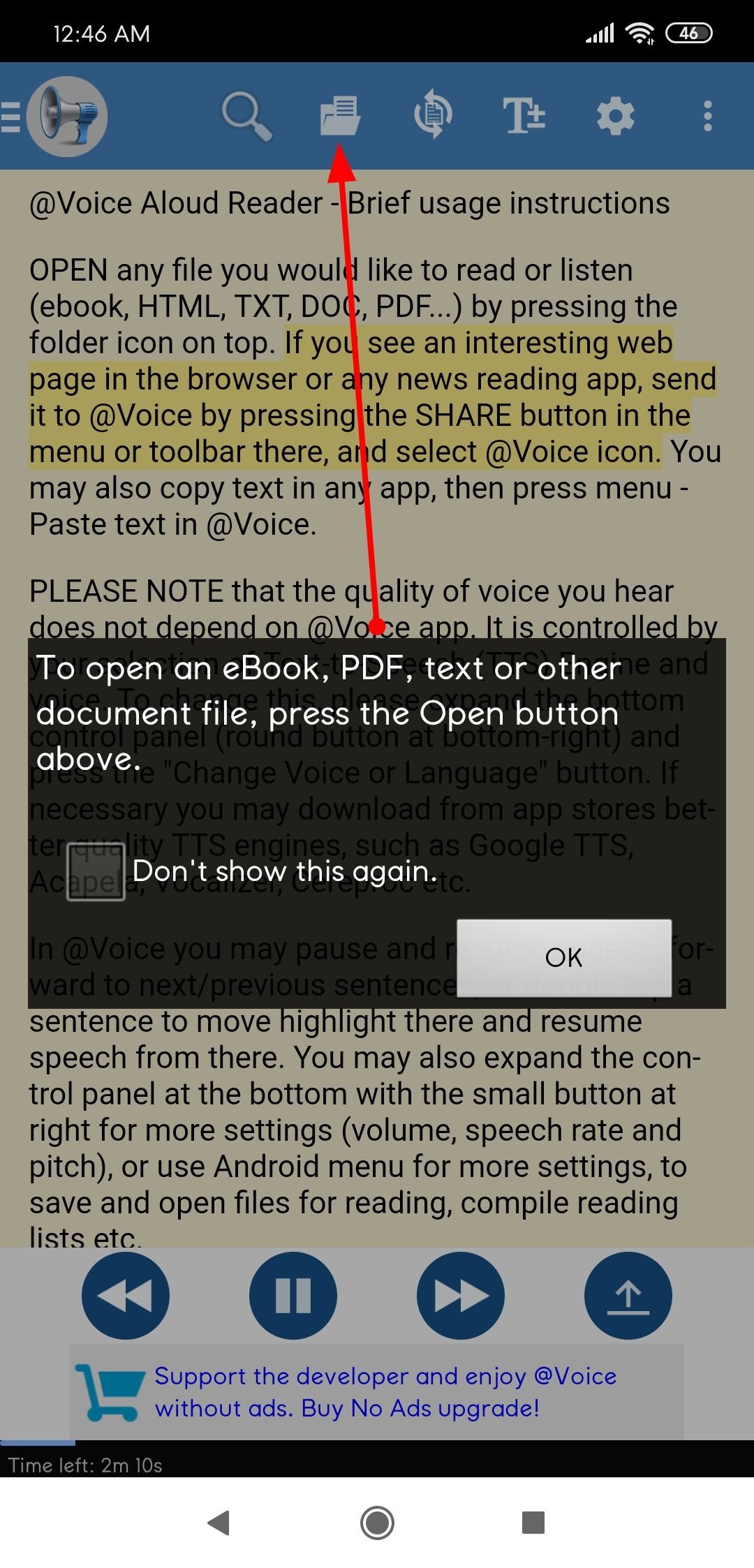

The server may cache the input text, as well as the synthesized speech, for short amounts of time as part of its normal operation it does not save them to any type of permanent storage. The server may use your anonymized IP address and User-Agent data for purpose of analytics, abuse management, and service improvement. When you select one of the premium text-to-speech voices, the input text is sent to our cloud server for synthesis. And neither the input text nor the synthesized speech are saved or stored on your computer.

When you select one of the standard text-to-speech voices, the speech synthesis occurs locally on your computer and is never sent to the internet. In particular, during installation, it does not ask for the "Read your browsing history" or the "Read and change all your data on the websites you visit" permissions, both of which could be used to track the user's browsing history. We realize the importance of privacy, so we make sure our extensions require only the minimum set of browser permissions to operate. We do not track the user's browsing history. If you don't use the Premium Voices, you don't need to sign in, and no information is collected.
Google text to voice reader developer free#
We require this information for usage tracking, since the Premium Voices requires making a purchase when usage exceeds the monthly free tier. If you use one of the Premium Voices, you'll be asked to sign in to your Google account and grant Read Aloud access to your basic user profile, which includes name and email address. To change the voice, reading speed, pitch, or enable text highlighting, go to the Options page either by right clicking on the Read Aloud icon and choose Options, or by clicking the Gear button on the extension popup (you'll need to stop playback to see the Gear button).

Right clicking on the selected text will provide you with yet another context-menu option to activate Read Aloud.

You may select the text you want to read before activating the extension. In addition, the shortcut keys ALT-P, ALT-O, ALT-Comma, and ALT-Period can be used to Play/Pause, Stop, Rewind, and Forward, respectively. To use Read Aloud, simply navigate to the web page you want to read, then click the Read Aloud icon on the Firefox menu. Read Aloud allows you to use your own Google Cloud Platform and Amazon Web Services account to enable these voices. Google Wavenet, Amazon Polly voices, for example, use bleeding edge technology to provide life-like synthetic speech that is close to that of human speech. Recent developments in machine learning and artificial intelligence has enabled very high-quality speech synthesis. Some of the cloud-based voices may require additional in-app purchase to enable. Read Aloud allows you to select from a variety of text-to-speech voices, including those provided natively by the browser, as well as by text-to-speech cloud service providers such as Google Wavenet, Amazon Polly, IBM Watson, and Microsoft. Read Aloud is aimed at users who prefer to listen to content instead of reading, people with dyslexia or other learning disabilities, children learning to read, or simply to provide users with alternative way to consume web content. It works on a variety of websites, including news sites, blogs, fan fiction, publications, textbooks, school and class websites, online universities and course materials. Read Aloud is a Firefox extension that uses text-to-speech technology to convert webpage text to audio. Supports EPUB (via the excellent EPUBReader extension). You can also set the pitch of the voice and the reading speed. You can choose from many available male and female voices. Tired of sitting, tired of reading? Click a button, jump on your bed, and have the article read aloud to you.


 0 kommentar(er)
0 kommentar(er)
